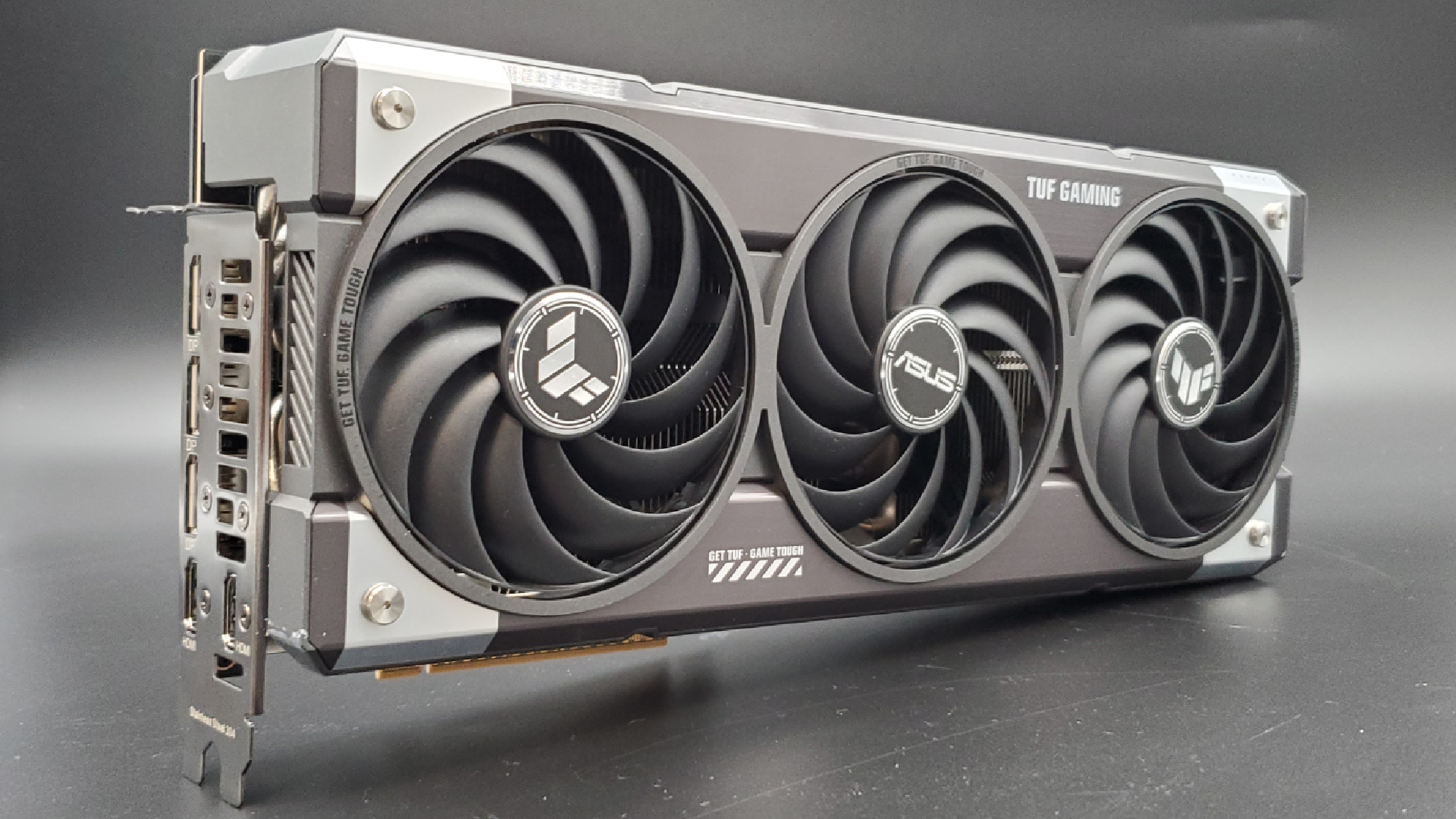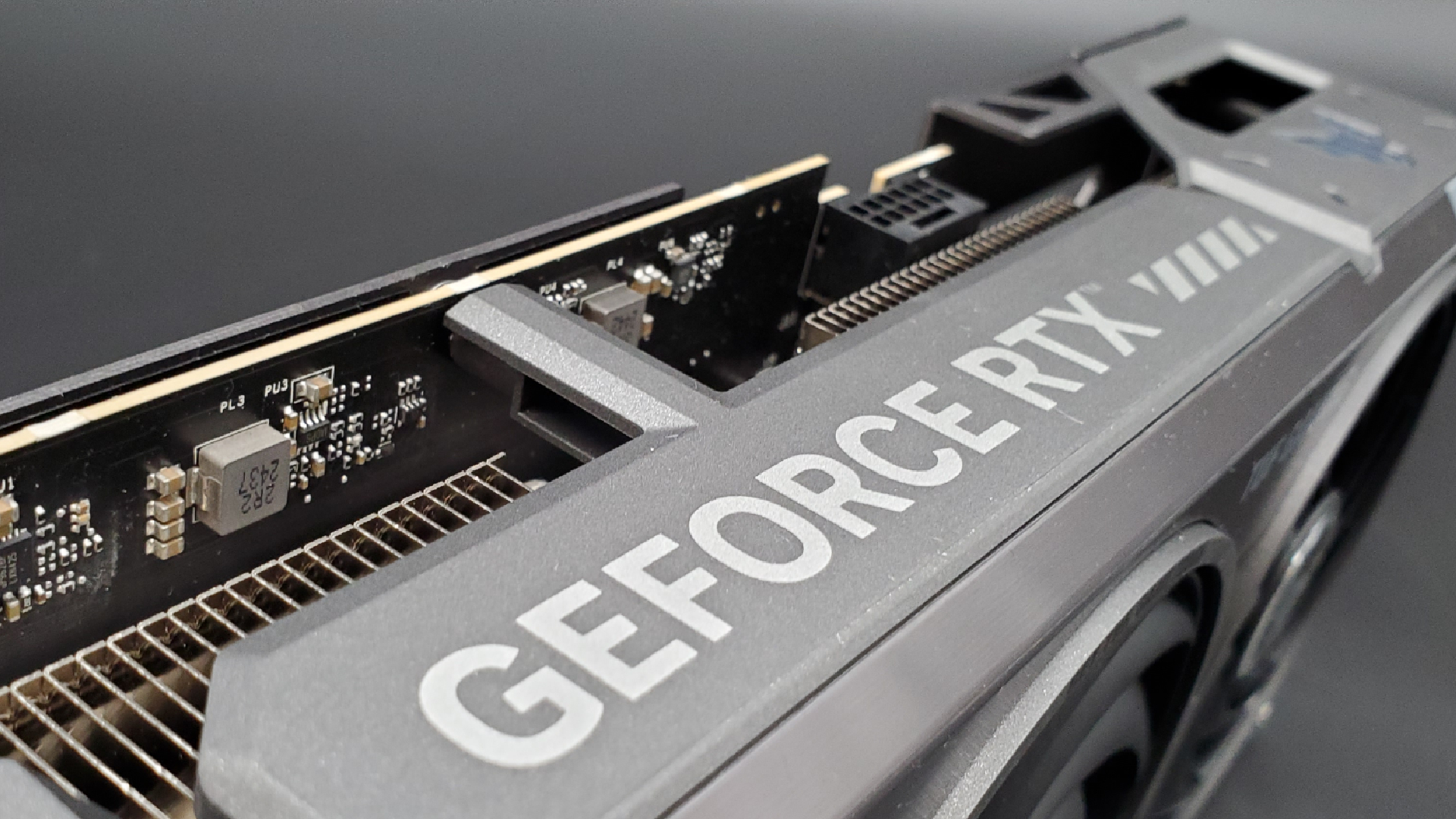Our Verdict
The Asus TUF is an impressive graphics card, and delivers excellent 1440p performance alongside some Frame Generation assisted-4K chops. It's no more impressive than any other RTX 5070 Ti in most respects, though, and while it runs a touch cooler and feels perhaps a little better made than the rest of the pack, it's still an overly-expensive proposition right now.
For
- Powerful yet quiet cooler
- High boost clock as standard
- Stable overclocker
Against
- Silly high pricing
- Substantial size
- Similar performance to (technically) cheaper cards
PC Gamer's got your back
It's fair to say that we've been impressed by the RTX 5070 Ti, at least on paper. Nvidia's RTX 50-series lineup has had its ups and downs, but the upper mid-range (bordering on high-end) card looks to hit the sweet spot between impressive performance, DLSS 4 Multi Frame Generation goodies, and price.
Again, on paper. The RTX 5070 Ti was announced at a $750 MSRP, but there's no reference card, meaning that a combination of reasonable demand, relatively low supply, and dubious AIB pricing strategies has resulted in a plethora of GPU options listed at well above that slightly-teeth-clenching figure. The Asus TUF Gaming RTX 5070 Ti OC Edition is no exception—it's currently listed at $1,000/£970 on the Asus website.
So, before we even get started, we have a pricing problem. The RTX 5080 FE has an MSRP of $999, and it's a significantly beefier card. Again, though, you simply can't get hold of one for anywhere near that kind of cash right now. Reviewing a graphics card in this kind of market becomes an exercise in hypotheticals as soon as you start factoring price and availability into the equation. It's tough out there, folks.
Still, what you get for your money is the same GB203 Nvidia chip, the same 8960 CUDA cores, the same 16 GB GDDR7 as the other, similarly-ludicrously-priced RTX 5070 Ti cards on the market. The difference here lies in two things: The boost clocks, and the ancillary components added to the board.
In the case of the former, the Asus GPU has a max rated boost clock of 2,610 MHz compared to the 2,452 MHz max speeds of the standard, non-overclocked RTX 5070 Ti—although, as you'll see when we get to the benchmarks, this particular card boosts way above that.
And in the latter, it's been fitted with a host of what Asus describes as "military-grade components" including upgraded chokes, MOSFETs and capacitors, a phase-change thermal pad, dual-ball fan bearings for its tri-fan cooler, and even a protective PCB coating to resist excess moisture and dust.
It seems Asus takes this whole "TUF" thing rather literally. Good. I like an overbuilt piece of hardware, and this card feels like it the moment you get it in your hands. It's a weighty, satisfying object to hold, feeling closer to a technologically-advanced cinderblock than a graphics accelerator.
Still, you're not going to be holding it for long. If you're anything like me, you're going to be desperate to wedge it in your machine. And wedge, in my case, is the right choice of words. It's a three slot design with 329 x 140 x 62.5 mm dimensions, and in the case of my otherwise reasonably spacious Micro-ATX chassis, requires some Tetris-like trial and error to squeeze in. Measure, then measure again if you plan on picking up one of these.
Anyway, enough hemming and hawing about price, component choices, and size. This is a factory overclocked version of a very speedy card, so let's see how it does when pushed to the limits in our benchmark rig.
Performance
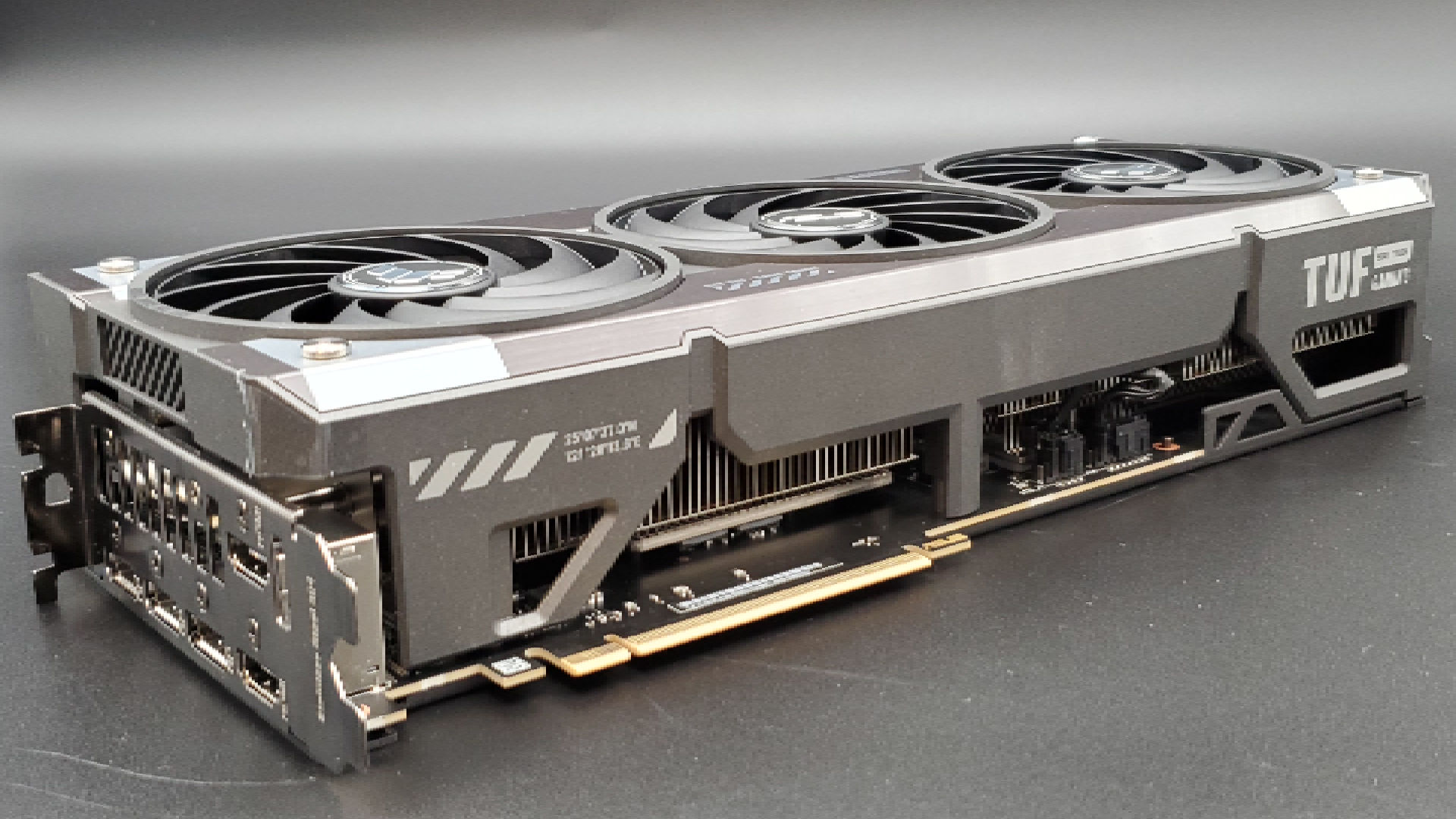
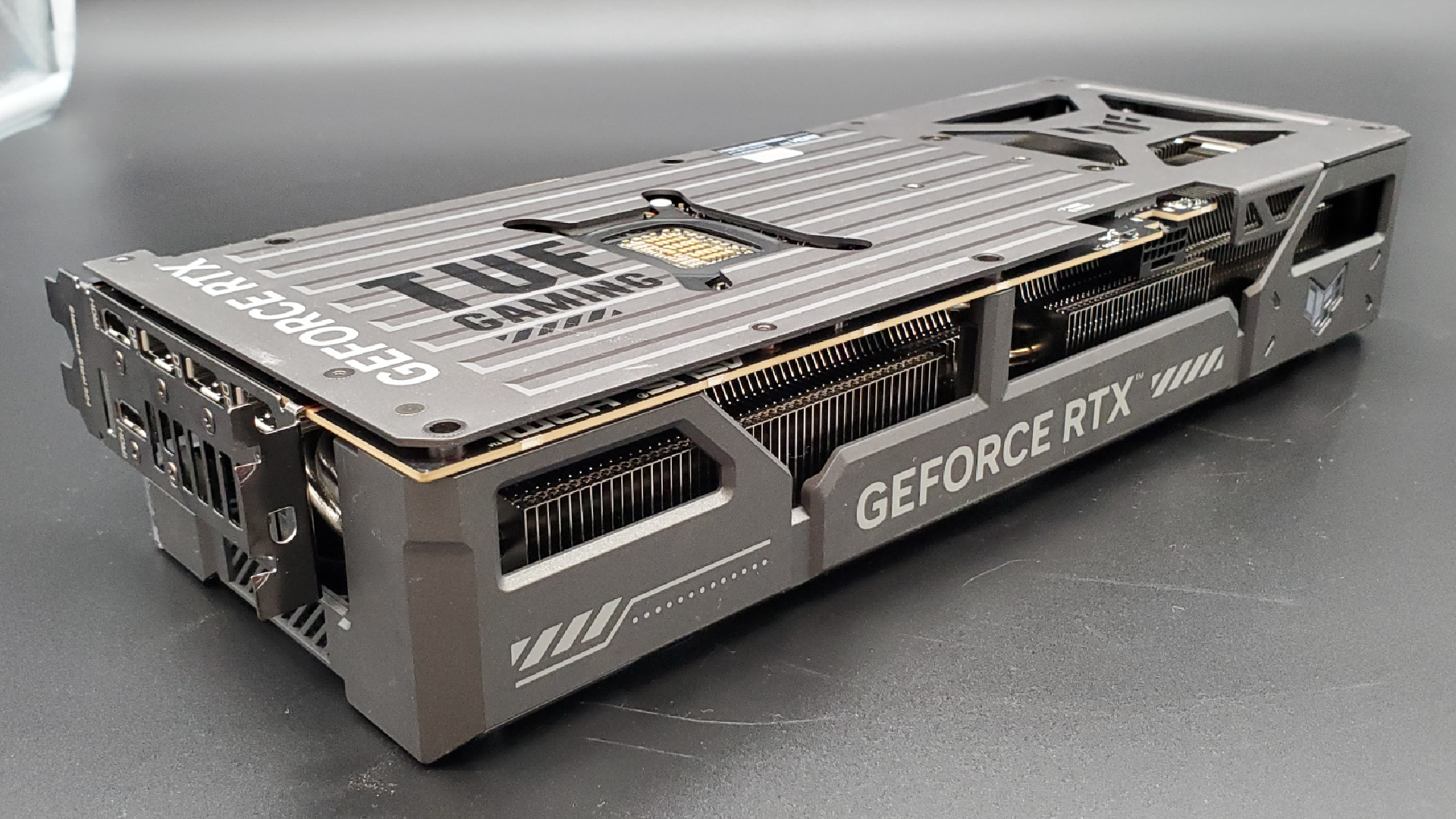
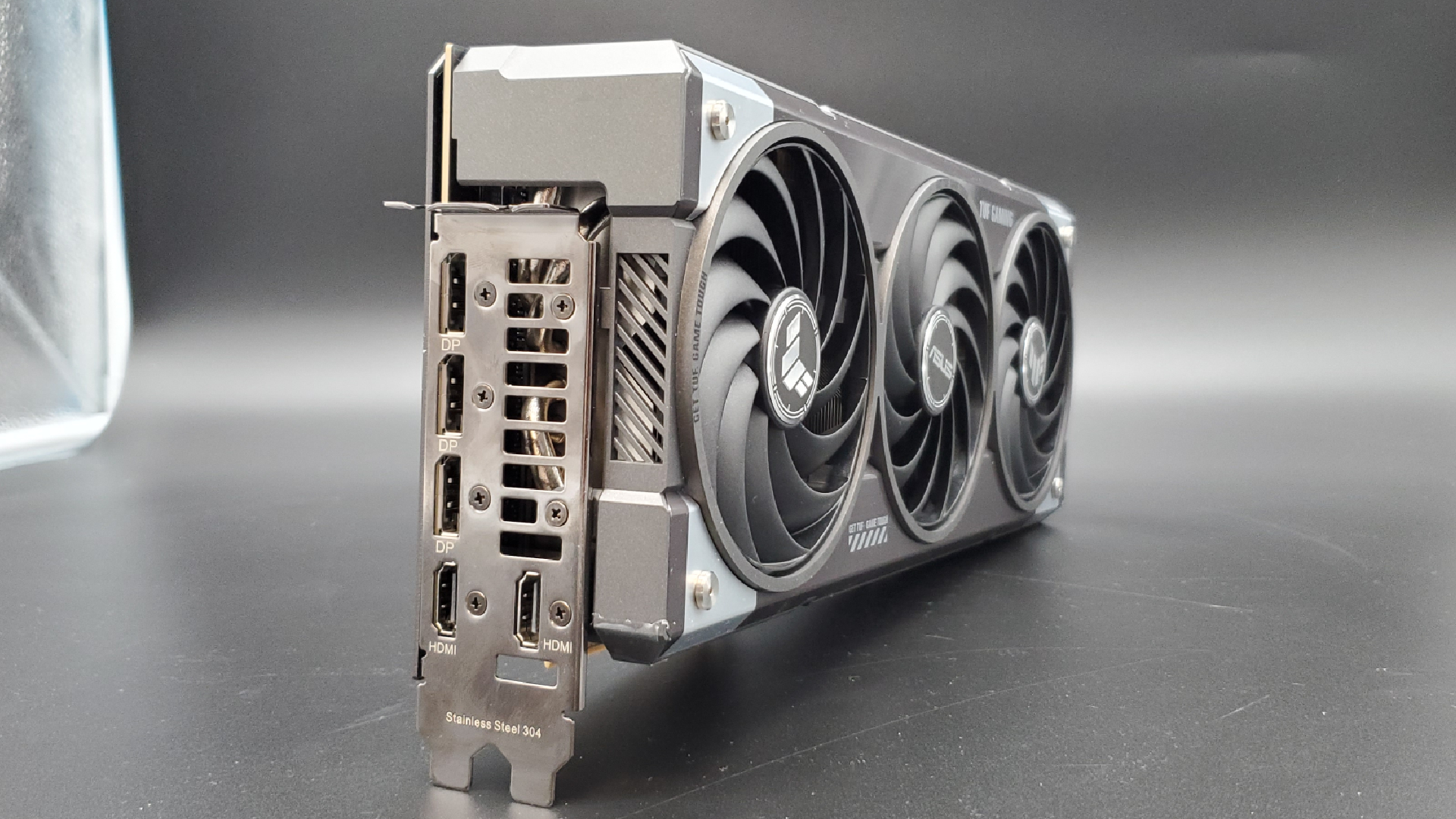
The first point of comparison is the MSI RTX 5070 Ti Ventus 3X OC, a card that also comes with a factory overclock—according to MSI, a whole 45 MHz over the standard spec in Performance mode. However, over the course of three Metro Exodus Enhanced runs at 4K Ultra settings, it becomes clear that all of our RTX 5070 Ti samples are happy to range well above that, with the Asus TUF topping the chart with an average clock speed of 2,716 MHz.
Still, it's not much of a clock speed gain compared to the other cards. Given the 24 MHz practical difference between the Asus and the MSI (and the 57 MHz difference between the Asus and the Gigabyte RTX 5070 Ti Eagle OC Ice SFF, also a factory overclocked GPU), you're probably expecting the gaming performance of these three cards to be very similar under real-world conditions. And, well, you'd be right.
At 4K, the Asus is within two to three fps of the MSI and Gigabyte cards in either direction in the average fps results. When it comes to minimums, however, there are some more significant differences to ponder over. The TUF GPU manages a seven fps lead over the MSI in Black Myth Wukong, although it's two fps off the pace when compared to the Gigabyte. In Cyberpunk at Ultra RT settings, it's neck and neck with the other RTX 5070 Ti models, although a single fps behind the MSI.
It's a similar story at 1440p. Really, given that gaming benchmarks can be somewhat twitchy (although we perform multiple runs of each and record our own results with Nvidia's Frameview tool to get the most accurate numbers), it's remarkable how closely each of these cards perform to each other. Minimum fps figures are always going to show the odd quirk, but averages remain within a six fps range throughout our test suite.
But hey, there's always upscaling and Frame Generation to consider. All of our RTX 5070 Ti samples are on even footing here, and that translates directly to the similarity of results between the three. The major anomaly comes in the form of the RX 9070 XT with FSR enabled in F1 24 and The Talos Principle 2 at Ultra settings, which somehow manages to give even the RTX 5080 a sound thrashing in the averages.
That's a GPU with a $599 MSRP, and it's impressive to see just how closely it matches (and sometimes outright beats) each of our RTX 5070 Ti samples. Are my price comparison woes over? Nope. We haven't seen one at that price for a while, and a quick scan of the listings reveals a smattering of cards for $1,000+. I told you this was going to be tough, didn't I?
But what about power and thermals? All of those high spec capacitors, MOSFETs and more must move the needle somewhat, right? Especially given the size of that massive tri-fan cooler.
Sort of. The Asus card manages a lower average power figure than the MSI— but slightly higher than the Gigabyte, by a whole three watts. It's significantly less power-hungry than the RTX 5080 FE, of course, but then it's significantly slower in the gaming benchmarks, too, like all of our RTX 5070 Ti cards.
Who would have thought a 10752 CUDA core card would use significantly more power and deliver significantly more performance than the card below it in the stack? Me, for one, and I would imagine your good self, too.
Thermal benches tell a slightly happier story for the beefy Asus. Thanks to that thermal pad and a sizable cooler, it runs four degrees cooler than the MSI on average, and manages a six degree cooler peak temperature result. It's the RX 9070 XT that wins the day once more, however, as the Asus Prime model stays remarkably chilled with a 59 °C peak and a 56 °C average.
And then there's productivity, where… are you starting to spot a theme here? Still, one thing to note is that the overbuilt Asus is actually a little off the pace on average across our productivity tests compared to its RTX 5070 Ti brethren. It's by a relatively insignificant amount, though, and I'd say the results are still well within margins of error.
PC Gamer test rig
CPU: AMD Ryzen 7 9800X3D | Motherboard: Gigabyte X870E Aorus Master | RAM: G.Skill 32 GB DDR5-6000 CAS 30 | Cooler: Corsair H170i Elite Capellix | SSD: 2 TB Crucial T700 | PSU: Seasonic Prime TX 1600W | Case: DimasTech Mini V2
Overclocking
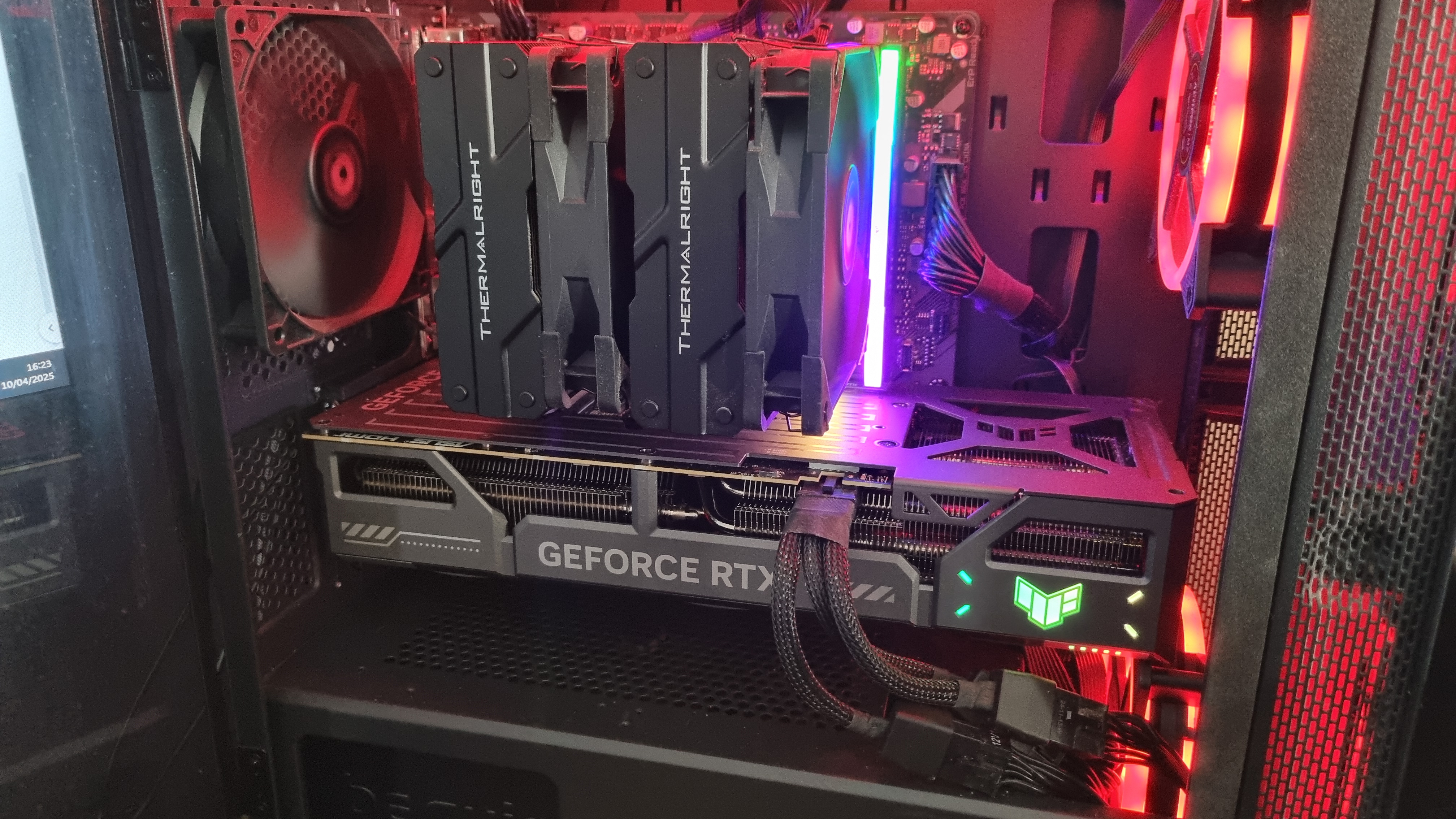
The last thing to talk about is overclocking. Given that the Asus TUF has good thermal performance and some high-spec ancillary components, on paper it looks like it might stand a better chance of hitting higher overclocked speeds than its competitors.
My benevolent hardware overlord Dave James managed to achieve a stable +450 MHz chip boost in tandem with a +1000 MHz memory overclock on the MSI card, and I'm happy to report that the Asus manages the same. In fact, it's utterly rock solid at this particular magic combination. I've been running the Asus in my personal rig for the past several weeks at these speeds, and it's not flinched once.
Push that chip to +475 MHz, though, and like the MSI, it begins to twitch and crash.
A +450 MHz boost is where it likes to sit, meaning you're not really gaining any meaningful performance over our other overclocked RTX 5070 Ti cards, either. It'll manage the same equivalent boost as the others, but nothing tangibly more in terms of real-world gains that could edge it ahead of the pack.
One thing I can say from personal experience is that it's much more stable than the Colorful RTX 5070 Ti Vulcan OC with its one-click OC VBIOS enabled. Small wins, and all that.
Analysis
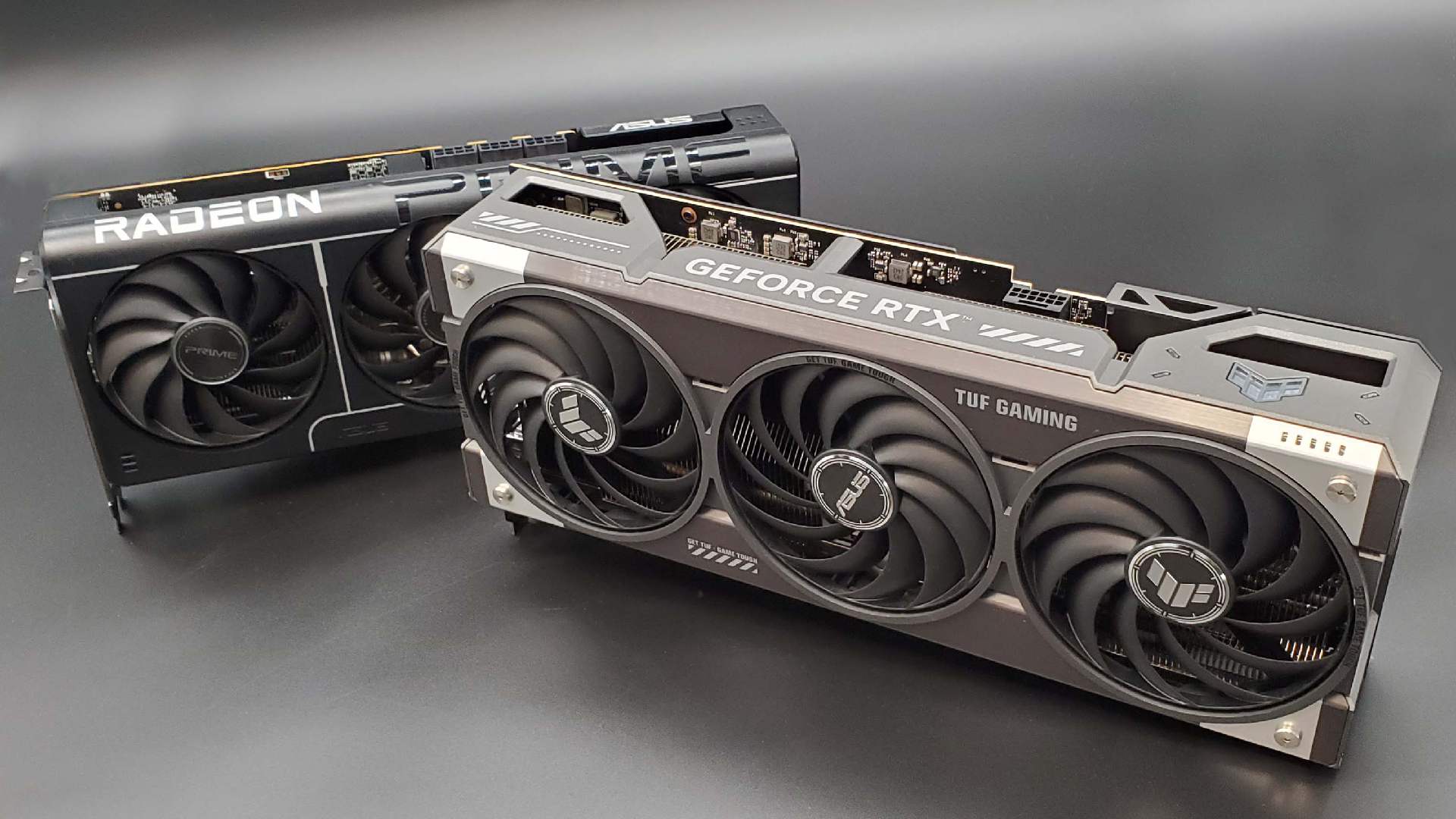
Here's the thing: I like the Asus TUF Gaming RTX 5070 Ti OC Edition, silly name and all. I'm a fan of overbuilt hardware, and it's certainly that. It's also chilled out under load, imperceptible over my CPU cooler when it comes to noise, and is more than capable of delivering a tasty slice of 1440p and 4K performance that makes gaming on it a genuine pleasure.
It's also a relatively stable overclocker, and a card that engenders confidence to do so. I'm not sure whether "military-grade" components really do last all that much longer when a card is pushed to its limits, but there's a sense that Asus has really thought about making this card live up to its TUF moniker, and that's pleasing to see. It may well end up being a little more resilient than other cards in terms of wear and tear, at least.
✅ You don't want to worry about thermals: The Asus TUF Gaming card runs cool and serene, even when pushed hard.
✅ You want a stable overclocker: The Asus is rock solid at the same sort of clock speeds that can trouble lesser-built GPUs.
❌ You don't want to overpay: All RTX 5070 Ti's are too expensive right now, and this one is no exception.
❌ You've not got a lot of case room to spare: I've seen bigger, but not by much. That substantial cooler really is a squeeze to fit into many cases.
Is it worth paying $250 more than MSRP for that intangible (and difficult to test) sense, though? No. But then I see RTX 5070 Ti variants listed for $1,000+ on the daily. Even the Gigabyte RTX 5070 Ti is now well above that price, and that's a card that, at $900, our Jacob already thought was far too expensive. He's right, naturally, but it's a poor state of affairs out there for you, the potential buyer.
So really the advice is, if you absolutely must have an RTX 5070 Ti right now, the Asus is potentially the one to go for—as long as you can't find an equivalent GPU for cheaper. It only really makes sense while both the RTX 5070 Ti and RX 9070 XT cards are hovering around the $1,000 mark, and for how much longer that remains true is anyone's guess.
With my own personal funds? I'd wait instead. The GPU market is about as volatile as it's ever been right now, not to mention the continuing economic uncertainty that surrounds it, and who knows how that might change in future. We're expecting more stock at some point, which may push prices down to more palatable levels, but even that seems uncertain.
It's just a terrible time to recommend almost any new GPU given current pricing, and I wouldn't be doing my job properly if I didn't point that out.
Ultimately, it comes down to this: The Asus TUF Gaming RTX 5070 Ti OC Edition is a very good graphics card in the same way a titanium-framed fountain pen is a very good writing device. It's undeniably true, but the real question is, would you pay for any fountain pen, overbuilt or not, at vastly over-inflated prices? Me, right now, with my own cash? I think not.
The Asus TUF is an impressive graphics card, and delivers excellent 1440p performance alongside some Frame Generation assisted-4K chops. It's no more impressive than any other RTX 5070 Ti in most respects, though, and while it runs a touch cooler and feels perhaps a little better made than the rest of the pack, it's still an overly-expensive proposition right now.

Andy built his first gaming PC at the tender age of 12, when IDE cables were a thing and high resolution wasn't—and he hasn't stopped since. Now working as a hardware writer for PC Gamer, Andy's been jumping around the world attending product launches and trade shows, all the while reviewing every bit of PC hardware he can get his hands on. You name it, if it's interesting hardware he'll write words about it, with opinions and everything.
You must confirm your public display name before commenting
Please logout and then login again, you will then be prompted to enter your display name.
